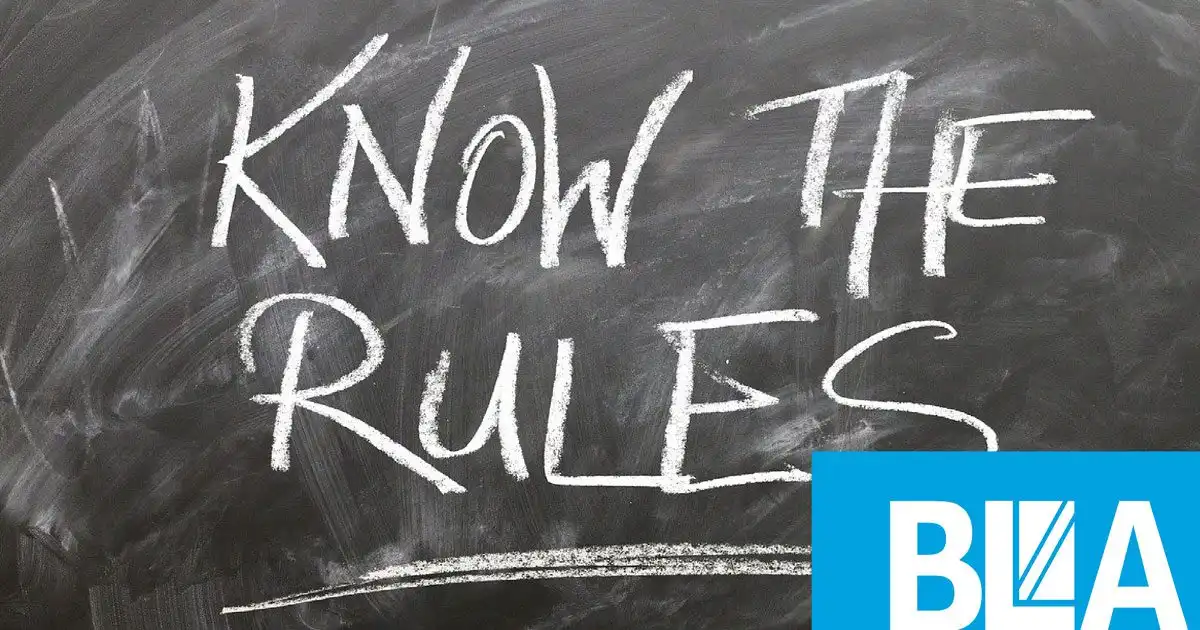Welcome to our comprehensive guide addressing the frequently asked questions landlords have about renting homes in Wales.
As seasoned experts in property management within the Welsh rental market, we understand the importance of clarity and knowledge when managing rental properties effectively.
In this guide, we’ll cover a wide array of topics relevant to landlords operating in Wales, providing detailed answers to common queries to help you confidently navigate the rental market in Wales.
Understanding Legal Obligations
What are the legal requirements for renting out a property in Wales?
Renting out a property in Wales entails specific legal obligations that landlords must adhere to.
These include ensuring compliance with the Renting Homes (Wales) Act 2016, obtaining a landlord registration, and complying with the Housing (Wales) Act 2014 requirements.
Also, landlords must ensure that the property meets the standards in the Housing Health and Safety Rating System (HHSRS).
How can I draft a legally binding tenancy agreement in Wales?
Crafting a robust tenancy agreement in Wales requires compliance with Welsh tenancy law.
The agreement should include essential terms such as rent amount, payment schedule, deposit protection details, and obligations of both parties.
Landlords must also provide tenants with a copy of the ‘How to Rent: The Checklist for Renting in Wales’ guide issued by the Welsh Government.
Property Management and Maintenance
How can I effectively manage multiple rental properties in Wales?
Managing multiple rental properties in Wales demands efficient organisations and compliance with Welsh regulations.
Landlords should implement streamlined processes for rent collection, property maintenance, and tenant communication while staying informed about Welsh housing legislation changes.
Property Utilising management software tailored to the Welsh rental market can streamline administrative tasks.
What are my responsibilities regarding property maintenance in Wales?
In Wales, landlords are legally obligated to ensure that rental properties are maintained safely and habitable.
This includes carrying out necessary repairs promptly, conducting regular inspections, and addressing health and safety hazards.
Landlords must also provide tenants an Energy Performance Certificate (EPC) and a valid Gas Safety Certificate.
Tenant Relations and Disputes
How should I handle tenant complaints and disputes in Wales?
Effective communication and conflict resolution skills are essential for addressing tenant complaints and disputes in Wales.
Landlords should respond promptly to tenant concerns, engage in constructive dialogue, and seek mutually satisfactory resolutions.
In unresolved disputes, landlords can seek assistance from Rent Smart Wales or mediation services.
What are the procedures for evicting a tenant in Wales?
Evicting a tenant in Wales requires compliance with the legal procedures outlined in the Renting Homes (Wales) Act 2016.
Landlords must follow specific steps, including serving notice in the prescribed format and obtaining a possession order from the court if necessary.
Landlords must seek legal advice and ensure compliance with Welsh eviction laws to avoid potential legal pitfalls.
Financial Considerations
How can I maximise rental income and minimise expenses in Wales?
Optimising rental income and efficiently managing expenses are key objectives for landlords in Wales. Conducting market research to determine competitive rental rates, minimising void periods, and implementing cost-effective maintenance strategies can help maximise profitability.
Landlords should also explore tax deductions and incentives available under Welsh tax law.
What are my tax obligations as a landlord in Wales?
Landlords in Wales are subject to various tax obligations, including income tax on rental earnings and council tax on vacant properties.
Also, landlords may be eligible for mortgage interest relief and wear and tear allowance deductions.
Staying informed about changes to Welsh tax legislation and maintaining accurate financial records are essential for compliance.
For Landlords
- What are the legal requirements for renting out a property in Wales?
In Wales, landlords must comply with the Renting Homes (Wales) Act 2016, which outlines various legal obligations.
These include obtaining a landlord registration, ensuring the property meets safety standards, providing tenants with an Energy Performance Certificate (EPC), and protecting tenants’ deposits in a government-approved scheme.
- How can I draft a legally binding tenancy agreement in Wales?
Drafting a tenancy agreement in Wales requires adherence to Welsh tenancy law.
The agreement should include essential terms such as rent amount, payment schedule, duration of the tenancy, and responsibilities of both parties.
Landlords should also provide tenants with a copy of the ‘How to Rent: The Checklist for Renting in Wales’ guide issued by the Welsh Government.
- What are my responsibilities regarding property maintenance in Wales?
Landlords in Wales are legally obligated to maintain rental properties in a safe and habitable condition.
This includes conducting regular inspections, addressing repairs promptly, ensuring compliance with health and safety regulations, and providing tenants with essential safety certificates such as Gas Safety Certificates.
- How should I handle tenant complaints and disputes in Wales?
Effective communication and conflict resolution skills are essential for managing tenant complaints and disputes in Wales.
Landlords should respond to tenant concerns promptly, engage in constructive dialogue, and seek mutually satisfactory resolutions.
In cases of unresolved disputes, landlords can seek assistance from mediation services or legal advice.
- What are the procedures for evicting a tenant in Wales?
Evicting a tenant in Wales requires adherence to the legal procedures outlined in the Renting Homes (Wales) Act 2016.
Landlords must serve the appropriate notice in the prescribed format and obtain a possession order from the court if necessary. It’s crucial for landlords to follow due process and seek legal advice to ensure compliance with Welsh eviction laws.
For Tenants
- What are my rights as a tenant renting a property in Wales?
Tenants in Wales are entitled to certain rights and protections under the Renting Homes (Wales) Act 2016.
These include the right to a written tenancy agreement, protection against unfair eviction, the right to live in a property that meets safety standards, and the right to challenge rent increases.
- How do I request repairs or maintenance from my landlord in Wales?
Tenants in Wales have the right to request repairs or maintenance from their landlord when necessary.
It’s advisable to communicate repair requests in writing, specifying the nature of the issue and requesting a timely resolution.
If the landlord fails to address maintenance issues, tenants can seek assistance from local housing authorities or legal advice.
- What are my obligations regarding rent payments and utility bills in Wales?
Tenants are responsible for paying rent according to the terms of the tenancy agreement. It’s important to make rent payments on time and in full.
Additionally, tenants may be responsible for paying utility bills such as gas, electricity, and water unless specified in the tenancy agreement.
- Can my landlord increase the rent during my tenancy in Wales?
Landlords in Wales can only increase rent during a tenancy if there is a rent review clause in the tenancy agreement or with the tenant’s consent.
Any rent increase must be reasonable and in line with market rates. Tenants have the right to challenge rent increases that they believe are unfair or disproportionate.
- What should I do if I have concerns about my tenancy or landlord in Wales?
If tenants have concerns about their tenancy or landlord in Wales, they should first attempt to resolve the issue directly with the landlord through open communication.
If the issue remains unresolved, tenants can seek assistance from organisations such as Shelter Cymru or Citizens Advice Cymru for advice and support.
For Prospective Tenants
- What should I consider before renting a property in Wales?
Before renting a property in Wales, prospective tenants should consider location, rental affordability, amenities, transportation access, and proximity to schools or workplaces.
It’s also essential to review the terms of the tenancy agreement, understand the landlord’s policies, and inspect the property for any potential issues or concerns.
- How can I protect my rights as a tenant in Wales?
Tenants can protect their rights in Wales by ensuring that they have a written tenancy agreement outlining the terms and conditions of the rental arrangement.
It’s advisable to keep records of all communication with the landlord, including repair requests and rent payments.
Familiarising oneself with Welsh tenancy laws and seeking advice from organisations such as Citizens Advice Cymru can also help safeguard tenants’ rights.
- What are my options if I encounter problems with my landlord or rental property in Wales?
If tenants encounter problems with their landlord or rental property in Wales, they should first attempt to resolve the issue directly with the landlord through clear and respectful communication.
Keeping a record of all correspondence can help document the issue. If the problem persists or escalates, tenants can seek assistance from local housing authorities, tenant advocacy organisations, or legal professionals specialising in housing law.
- Can I sublet my rental property in Wales?
Subletting a rental property in Wales is subject to the terms of the tenancy agreement and the landlord’s consent.
Before subletting, tenants should review their tenancy agreement to determine whether subletting is permitted and obtain written permission from the landlord if required.
It’s essential to communicate openly with the landlord and ensure that subletting arrangements comply with Welsh housing laws.
- What are my rights regarding the return of my security deposit in Wales?
In Wales, landlords are required to protect tenants’ security deposits in a government-approved tenancy deposit scheme.
At the end of the tenancy, landlords must return the deposit within specified timelines and provide a detailed breakdown of any deductions made.
Tenants have the right to dispute any unfair deductions and seek resolution through the deposit protection scheme’s dispute resolution process.
Conclusion
Renting a home in Wales involves rights, responsibilities, and legal considerations for landlords and tenants.
This FAQ guide addresses common questions and concerns so that individuals can navigate the rental process in Wales with confidence and clarity.
Remember to stay informed about Welsh tenancy laws, communicate openly with landlords or tenants, and seek assistance from relevant organisations or legal professionals when needed.
Links to Relevant Resources for Landlords and Tenants in Wales
Rent Smart Wales:
Rent Smart Wales – Rent Smart Wales is the licensing and registration authority for landlords and agents in Wales.
Landlords can register themselves and their rental properties, while tenants can verify if their landlord is registered and access useful resources on their rights and responsibilities.
Shelter Cymru: Shelter Cymru
Shelter Cymru is a charity organisation providing housing advice, support, and advocacy for people facing housing issues in Wales. Tenants can seek advice on their rights, homelessness prevention, and resolving disputes with landlords.
Citizens Advice Cymru: Citizens Advice Cymru
Citizens Advice Cymru offers free, confidential advice and information on various topics, including housing, benefits, and legal rights. Tenants can access guidance on renting privately, dealing with housing problems, and understanding tenancy agreements.
Welsh Government – Housing and Local Government: Welsh Government – Housing and Local Government
The Welsh Government’s housing and local government webpage provides information and updates on housing policies, regulations, and initiatives in Wales.
Landlords and tenants can find resources on housing legislation, housing standards, and government schemes supporting housing affordability and sustainability.
Tenancy Deposit Scheme Wales: Tenancy Deposit Scheme Wales
The Tenancy Deposit Scheme Wales is a government-approved scheme for protecting tenants’ deposits in Wales.
Landlords can register deposits, provide prescribed information to tenants, and manage deposit disputes through the scheme’s adjudication service. Tenants can verify deposit protection and raise disputes if necessary.
These resources offer valuable information, guidance, and support for landlords and tenants navigating the rental market in Wales.
Whether seeking advice on legal obligations, resolving disputes, or accessing housing assistance, individuals can benefit from the services provided by these reputable organisations and government agencies.
The British Landlords Association is a national landlords association for UK landlords. It is one of the largest landlord associations in the UK. Join us now for £79.95!
Our top read blogs:
Disclaimer:
This post is for general use only and is not intended to offer legal, tax, or investment advice; it may be out of date, incorrect, or maybe a guest post. You are required to seek legal advice from a solicitor before acting on anything written hereinabove.




